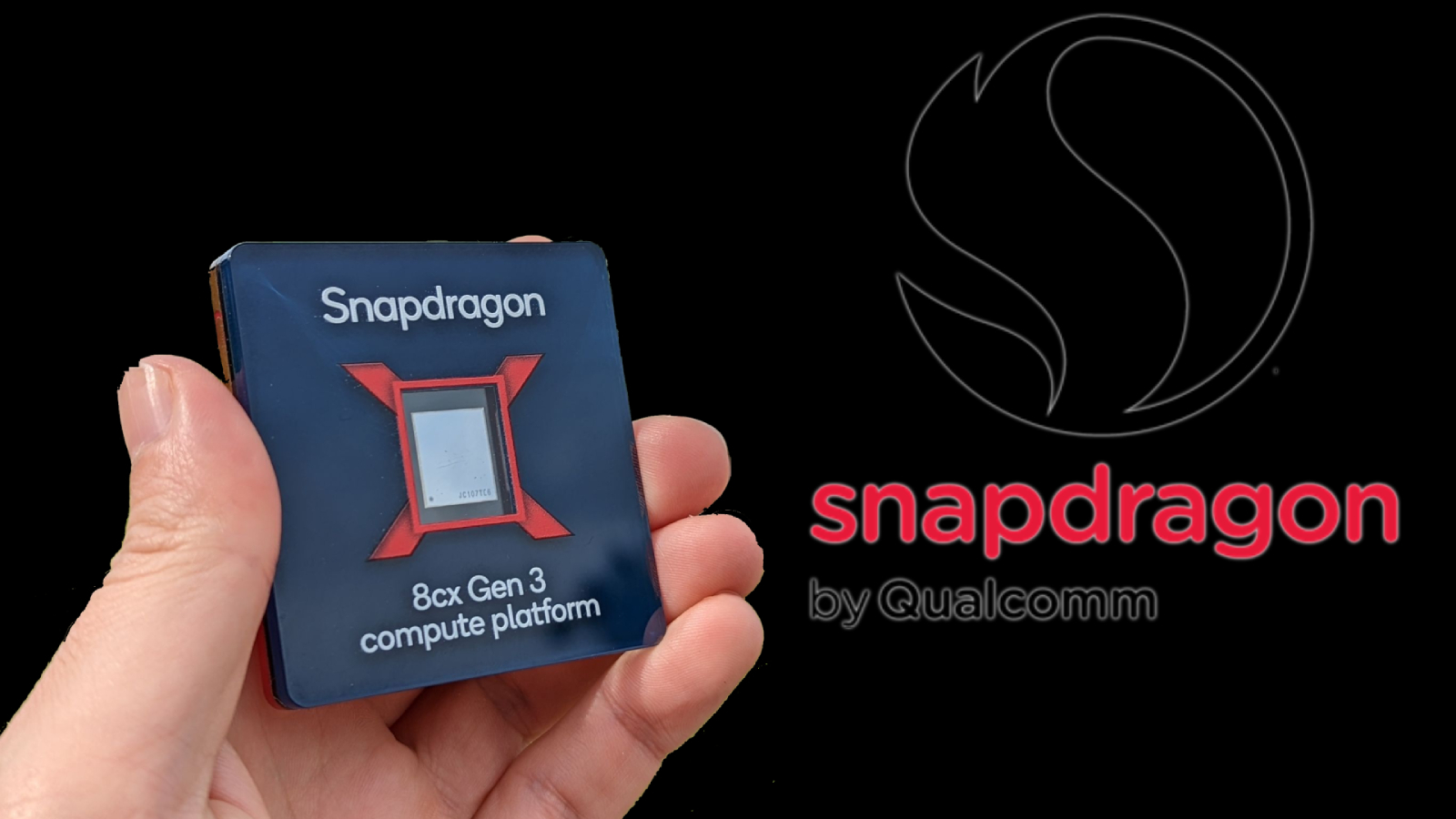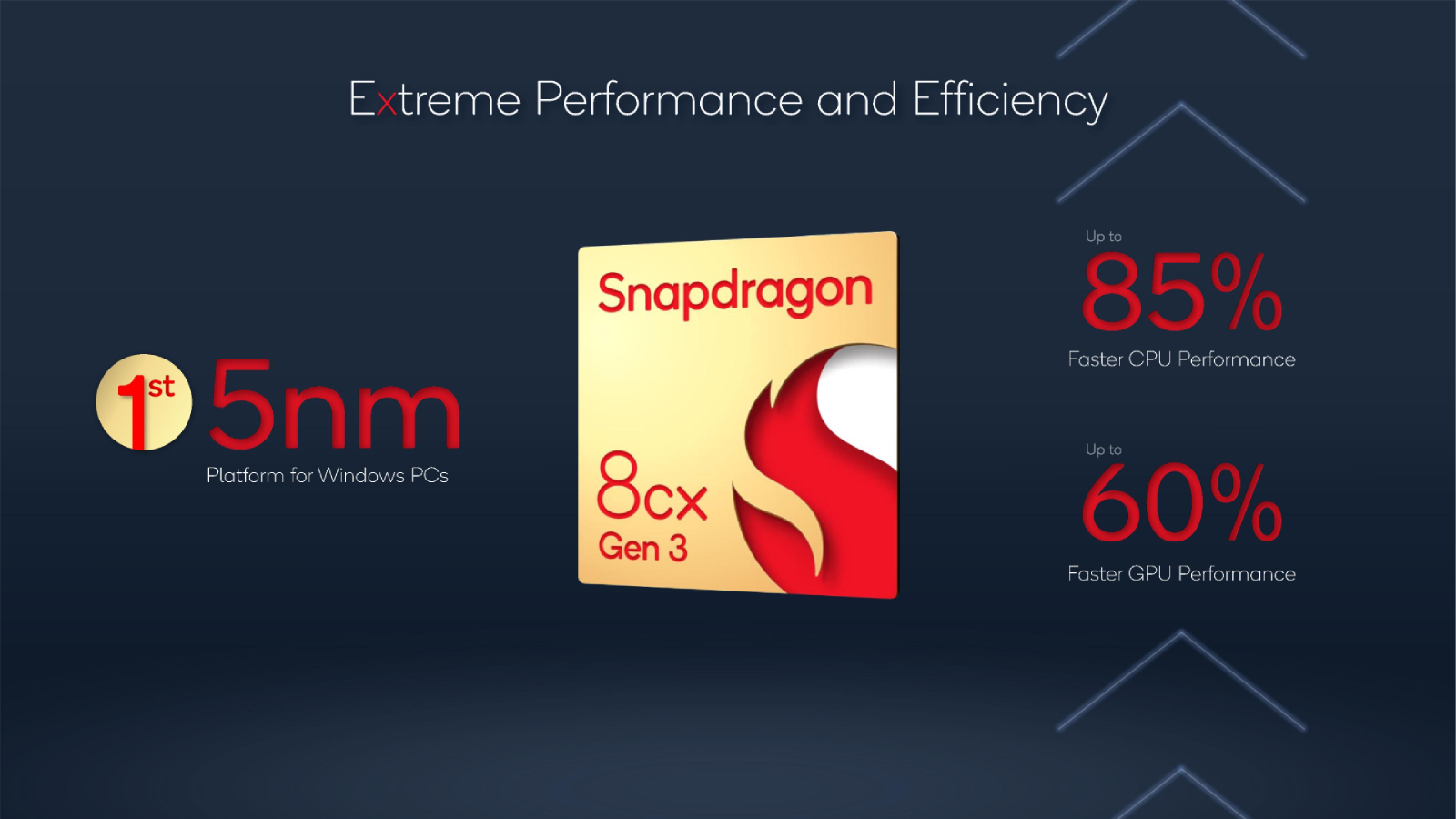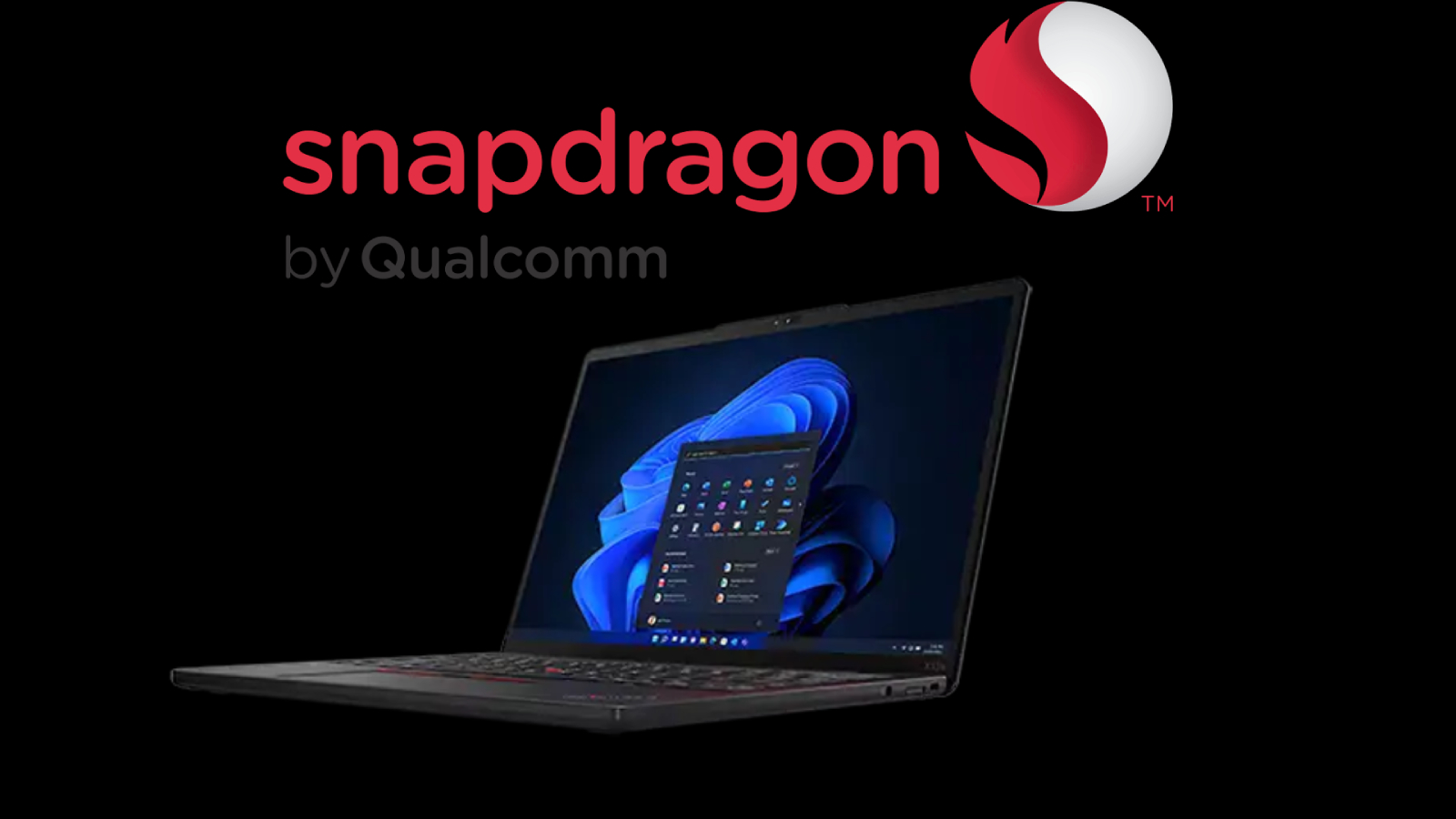Qualcomm Can Take Over the Ultrabook Market: Here's How
Snapdragon CPUs are closing the performance gap faster than expected, should Intel, AMD and Apple be scared?

Qualcomm finds itself in an interesting position these days as it directly challenges everything Apple, from iPhones to MacBooks; Qualcomm is producing chipsets across the tech spectrum that look to challenge the Cupertino-based tech giant at its own game.
However, can they genuinely challenge Apple in all these areas at once? With every generation of Snapdragon chipsets, we are seeing Qualcomm close the gap in performance and the broad spectrum of devices the chipmaker can get its ARM-based chips into and perform at a level that meets consumer demands.
I’m typing this out on the Lenovo ThinkPad X13S that comes with the Snapdragon 8cx Gen 3 chipset. I’ve got 30 tabs open with one playing a YouTube video, and I swear it chuckled at me. So far, it has handled all my document pushing and content consuming easily.. Although there have been vast performance improvements since Qualcomm's Snapdragon 8cx Gen 2 hit the market, Intel, AMD, and especially Apple have a huge head start. But I have the X13S in hand, and I’m starting to wonder if Qualcomm could be a real threat in the Ultrabook market, so let's take a deeper look.
By the Numbers
Looking at the numbers alone tells us only part of the story, but let’s indulge ourselves. We recently tested the Lenovo ThinkPad X13S using GeekBench 5.4 and tallied a single-core score of 1,126. On the multicore test, it registered 5,912.3, which won’t blow your socks off in the least, and in comparison, the MacBook Air with M2 scored 1,932 in the single-core and 8,919 in multicore. So the Snapdragon isn’t there just yet, and it is just a shade below the premium laptop average of 6,054, which is kind of impressive when you consider Qualcomm is playing catch-up. At this point, it appears that Apple has at least a three-year lead in the ARM-based chip game, but don’t sleep on Qualcomm — it could sneak up on the MacBook maker and dethrone it with just a few leaps of disruptive innovation..
During an interview this past summer, Qualcomm CEO Cristiano Amon stated, "We're aiming to have performance leadership in PC on the CPU, period," which is a bold thing to say when you also have AMD and Intel with long-time leads in the PC market space. However, Amon went there because Qualcomm had recently purchased Nuvia, a company with expertise in building high-performance chips using ARM architecture. When you add bold statements and billion-dollar tech purchases, you can sometimes end up with innovation and an industry shake-up.

Amon feels that the Nuvia purchase will give Qualcomm the edge it needs to not only catch up, but surpass Apple, Intel, and AMD in the PC and mobile computing market. He said, “Nuvia chips stand out from the current Snapdragon processors and focus on high-performance computations that power CPUs and GPUs. The current 5-nanometer Snapdragon 8cx Gen 3 chipset already outperforms the previous Gen by up to 30% in most benchmarks. It was built before the Nuvia purchase, so Qualcomm is already in the lab looking to turn things up.

Comparably speaking, the Snapdragon 8cx Gen 3 is on a par with the Intel Core i5-1235U CPU you will find in many Ultrabooks and Chromebooks. In our recent testing, the Core i5 registered a single core score of 1,448 and a multi-core score of 4,415. The Core i5 surpassed the Snapdragons single-core score of 1,126, a difference of 22%, but the 8cx Gen 3’s multi-core score of 5,912.3 is 25% better than the Core i5. So, although single-core performance is vital for gamers, better multi-core scores mean better overall performance for most average users and better battery life, so it comes down to what you’re using your laptop for. I’m not going to reveal how our Lenovo ThinkPad X13S did when we tested its battery life, but here’s a hint: it’s MacBookian — and yes, I made that up.
Sign up to receive The Snapshot, a free special dispatch from Laptop Mag, in your inbox.
What does it all mean? Can Qualcomm rule the Ultrabook Market?
Yes, and no. It’s already too late in 2022 for Qualcomm to rule the roost. However, with its purchase of Nuvia bringing new technology to its manufacturing process, we should see some effects of that investment come to market by late 2023.
Most likely, 2024 will be the year Qualcomm encroaches on the big three and will finally bring a PC to market that can match a MacBook in battery life and overall performance. That was painful for me to write. I write that not because PCs are incapable of reaching MacBook’s high-performance strata but because it usually requires adding a discrete GPU, which means less battery life.

To be quite honest, if you ran out and bought a Lenovo ThinkPad X13S right now not knowing it was powered by a Qualcomm Snapdragon 8cx Gen 3 processor, in my brief experience, you couldn’t tell the difference. Most consumers, business or otherwise, are not power users; they check emails, push documents, conduct video meetings, and watch “Andor” on Disney Plus when no one is looking. So far, the X13S has been a smooth ride, but I haven't pushed it to its limits yet to truly test its mettle (e.g., editing and rendering short videos), so make sure to check out my upcoming review to see how it did.
To wrap this up nicely and neatly, Qualcomm is a severe threat to take PC Ultrabooks to a whole new 15-plus hours of battery life, 5G-capable, super-productive level in the next two years. However, in the same two-year span, reviewers will discuss Apple’s M4 Ultra chips (two M2’s glued together, I kid).
Still, as far as Windows-based laptops, we will probably finally have a PC Ultrabook that will rival at least a MacBook Air if Qualcomm CEO Cristiano Amon has his way.

Mark has spent 20 years headlining comedy shows around the country and made appearances on ABC, MTV, Comedy Central, Howard Stern, Food Network, and Sirius XM Radio. He has written about every topic imaginable, from dating, family, politics, social issues, and tech. He wrote his first tech articles for the now-defunct Dads On Tech 10 years ago, and his passion for combining humor and tech has grown under the tutelage of the Laptop Mag team. His penchant for tearing things down and rebuilding them did not make Mark popular at home, however, when he got his hands on the legendary Commodore 64, his passion for all things tech deepened. These days, when he is not filming, editing footage, tinkering with cameras and laptops, or on stage, he can be found at his desk snacking, writing about everything tech, new jokes, or scripts he dreams of filming.
